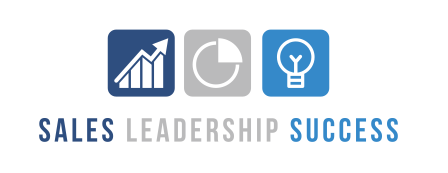Elevate Your Sales Team with Effective Role-Playing Strategies

The Pitch
Role-playing is often an underutilized tool in sales training, yet its impact on a team's performance can be substantial. The initial hesitation or perceived awkwardness can overshadow its benefits, but when done correctly, role-playing can transform your sales team into a well-oiled machine. It's not just about going through the motions; it's about creating a consistent, challenging, and engaging learning environment. According to a study by the Sales Management Association, organizations that implemented regular sales training, including role-playing, saw a 15% increase in sales productivity. This statistic underscores the effectiveness of role-playing in honing the skills of sales representatives.
Consistency - must do it every week.
The key to mastering any skill is consistency, and role-playing in sales is no exception. Implementing weekly role-playing sessions ensures that your team is continuously sharpening their sales techniques and strategies. This regular practice helps in ingraining the best responses to various sales scenarios into the muscle memory of your reps. By making it a non-negotiable part of the weekly routine, you're not only emphasizing its importance but also ensuring that your team is always on their toes, ready to handle any curveballs that prospects might throw their way. Consistent role-playing leads to consistent performance in the field.
Challenge - do it in front of the team or small group.
Role-playing in a group setting adds a layer of challenge that can be incredibly beneficial. It simulates the pressure of real sales situations and encourages team members to perform at their best. This public practice can initially be intimidating, but it also fosters a sense of accountability. When sales reps know their performance is observed not just by their manager but also by peers, it motivates them to put in the extra effort. Moreover, this challenge encourages team members to learn from each other, observing different approaches and techniques that they can incorporate into their own style. Be sure that the culture of your team will accommodate this, if not, you have some other work to do on culture. An analogy on doing this in front of the team, is like running more than 26.2 miles to train for a marathon. It is surprisingly hard to do this in front of your peers, but will make you that much better on race day.
Focused - on specific aspects of the sales process.
To maximize the benefits of role-playing, it's crucial to focus on specific aspects of the sales process. This targeted approach allows reps to dive deep into particular stages of the sales cycle, whether it's the initial contact, handling objections, or closing the deal. By breaking down the process and concentrating on one element at a time, the team can develop a nuanced understanding and skill set that will serve them in every customer interaction. Focused role-playing sessions can lead to significant improvements in each part of the sales process, ultimately enhancing overall performance.
Feedback - Have other members of the team give feedback too.
Feedback is a cornerstone of effective role-playing. It's not just about the manager's perspective; peer feedback can be incredibly insightful. When team members critique and compliment each other's role-playing efforts, it creates a collaborative environment where everyone is invested in each other's growth. This collective feedback mechanism can uncover unique insights and foster a supportive atmosphere where everyone is working towards the common goal of improving as a unit.
Fun - Don't take it too seriously, have a little fun with it.
While role-playing is a serious tool for improvement, it's essential to keep the atmosphere light and enjoyable. Incorporating fun into these sessions can significantly increase engagement and participation. When reps enjoy the process, they're more likely to embrace it and bring their full selves to the exercise. A little humor can also help in relieving the tension and making the practice more memorable. Teams that enjoy their training are more cohesive and motivated.
Follow up - Have reps share what worked well with the group.
The follow-up to role-playing sessions is just as important as the exercise itself. Encouraging reps to share their successes following the role-play exercises reinforces the value of the practice and allows for real-world application of the techniques learned. When sales reps share what worked well for them, it not only boosts their confidence but also serves as a learning opportunity for the rest of the team. This sharing of best practices can help in creating a repository of effective sales strategies within the team.
So What?
Incorporating these role-playing strategies into your regular training regimen is more than just a box-ticking exercise; it's about building a culture of excellence and continuous improvement. By focusing on consistency, challenge, specificity, feedback, fun, and follow-up, you're not just training your team; you're equipping them with the tools to excel. This approach not only enhances individual performance but also contributes to the team's collective success, driving your company towards its sales targets. And in doing so, you transition from a sales manager to a sales leader, becoming the mentor and ally every sales rep seeks.
Next Steps
✅ Schedule weekly role-play sessions.
✅ Create focused role-play scenarios.
✅ Encourage peer feedback exchange.
✅ Integrate fun into training activities.
✅ Share successful role-play outcomes.
Closed Won!
Role-playing can be a game-changer in the world of sales, and as leaders, it's our job to ensure it's done effectively. What have you done that worked, what are you trying that is helping level up your reps and make you the Sales Leader you wanted to work for?
Leave a comment or question below, let's help each other, and our reps move those deals to "Closed Won!"
